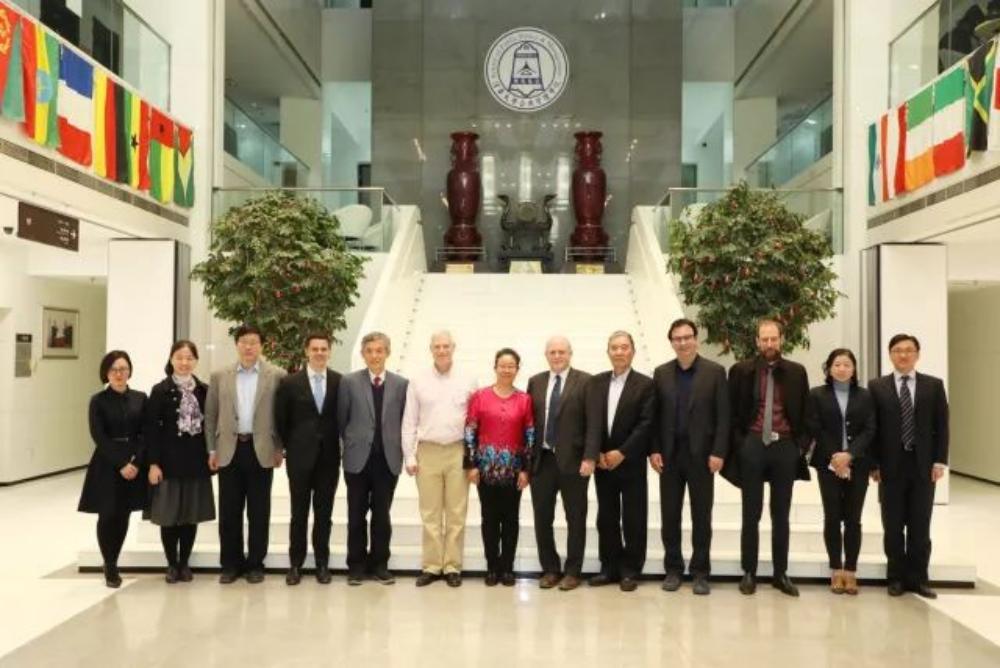
On 10 November, the Solar Geoengineering and Policy Workshop on Improving Solar Energy Utilization was successfully held in Beijing. The workshop was co-hosted by the the School of Public Policy & Managment, Tsinghua University (SPPM) and the Harvard Kennedy School of Government (HKS), and organized by the Institute of Sustainable Development Goals of Tsinghua University (TUSDG), with the participation of more than 20 Chinese and foreign experts, including scholars from Harvard University, Tsinghua University, Chinese Academy of Sciences (CAS), Chinese Academy of Social Sciences (CASS), and Beijing Normal University (BNU), as well as senior government officials. Xue Lan, Dean of SPPM and Director of TUSDG, and Daniel Schrag of Harvard University hosted the seminar, where experts and scholars from China and the United States conducted in-depth discussions and exchanges on the opportunities, challenges, and future development of geoscience engineering.
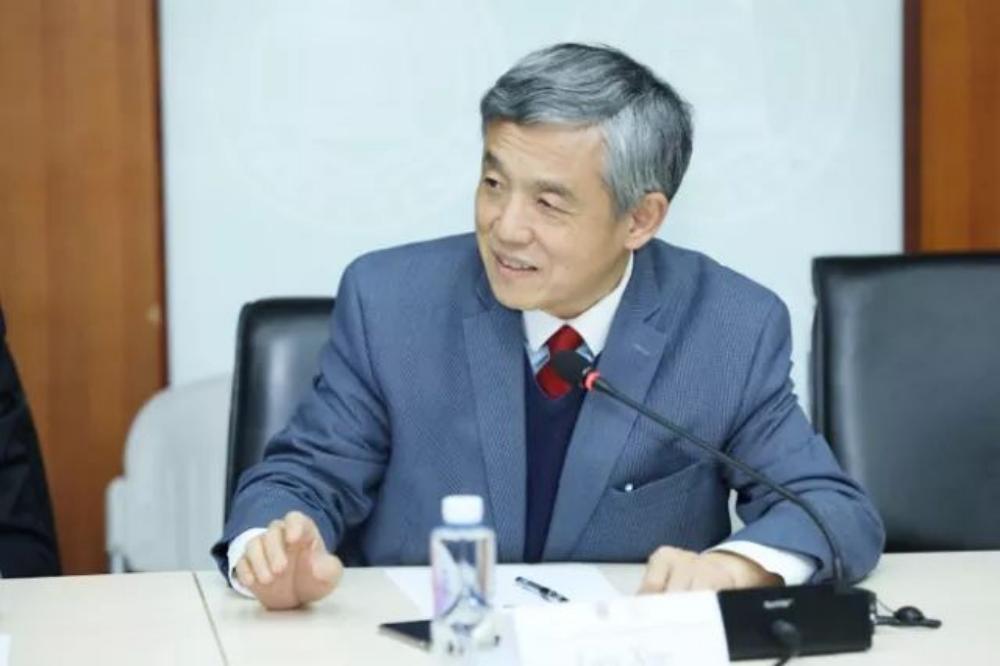
Xue Lan Chaired the Meeting
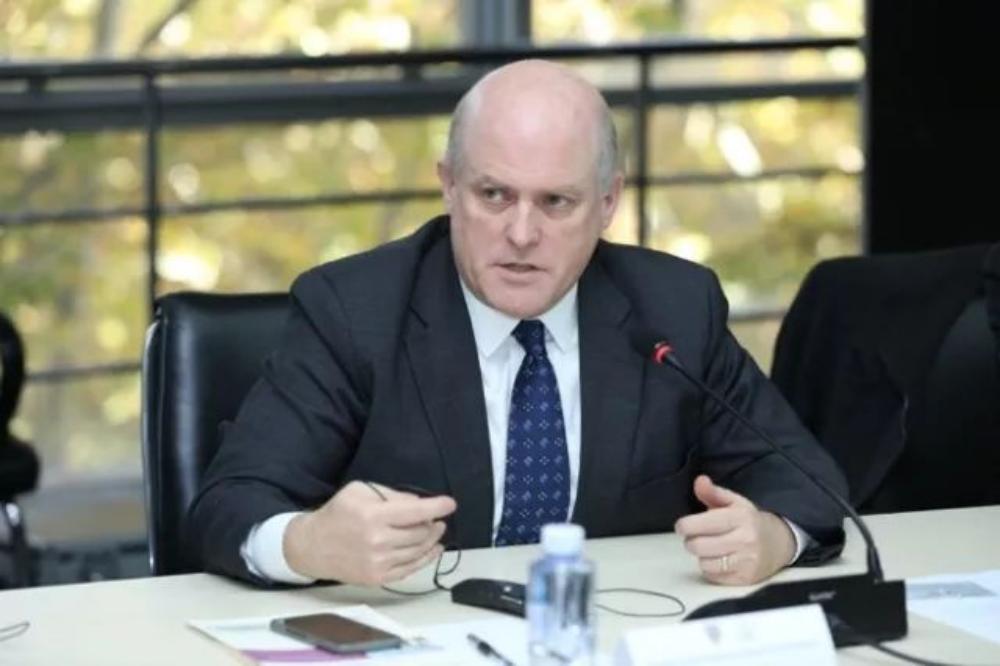
Daniel Schrag Chaired the Meeting
At the beginning of the workshop, John Holdren, Science and Technology Advisor in the Office of former US President Barack Obama and Professor at Harvard University, expressed his thoughts on climate change and geoscience engineering through remote communication. He pointed out that geoscience engineering is of outstanding significance and can play an important role in mitigating climate warming, adapting to climate change and avoiding harm to human beings. Currently, greenhouse gas emission reduction, carbon sequestration and solar radiation management are the main ways to achieve the two-degree temperature control goal of the Paris Agreement, and Professor Holdren pointed out that although the future is not yet clear, we should pay attention to and further promote the research in the field of solar radiation management.
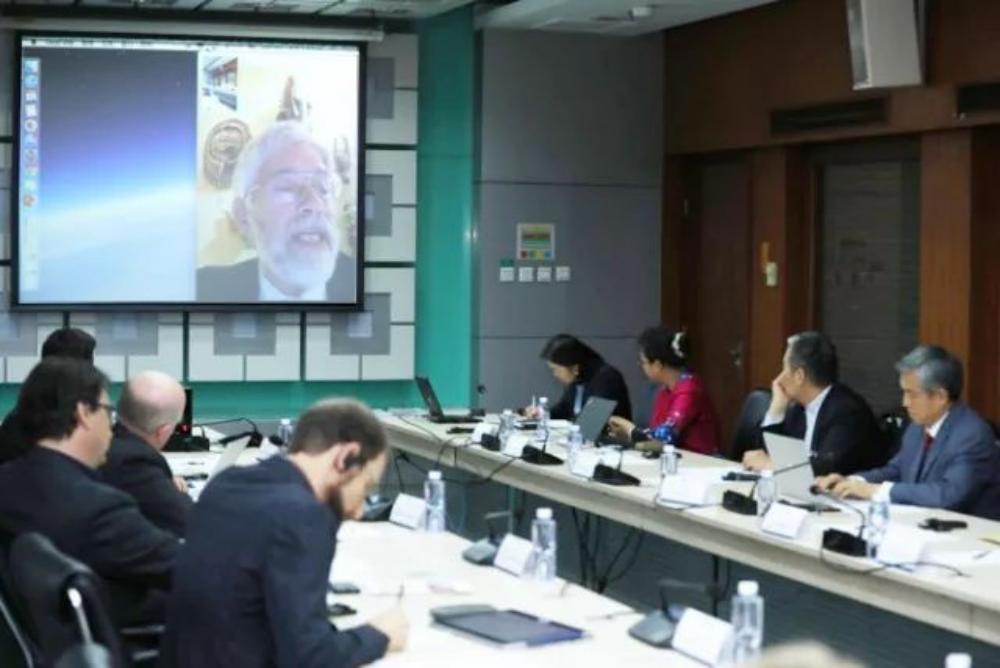
John Holdren participated remotely
Liu Yanhua, former Vice Minister of the Ministry of Science and Technology and Chairman of the National Expert Committee on Climate Change, as representative of the Chinese side, pointed out that we should understand the possible contribution of geoscience engineering in addressing climate change from multiple perspectives. As an important way and option filed to cope with climate change, although geoscience engineering cannot be implemented and play a central role immediately, attention and research in this field should not be neglected for this reason. A number of countries, including the United States, Japan, India, Australia and European countries, are initiating research on geoscience engineering. In China, three research teams from the Academy of Social Sciences, Beijng Normal University and Zhejiang University are exploring research in this field. Experts and stakeholders from all over the world should work together in this field to promote the role of geoscience engineering, taking into full consideration factors such as technology, impact, equity, safety and international law.
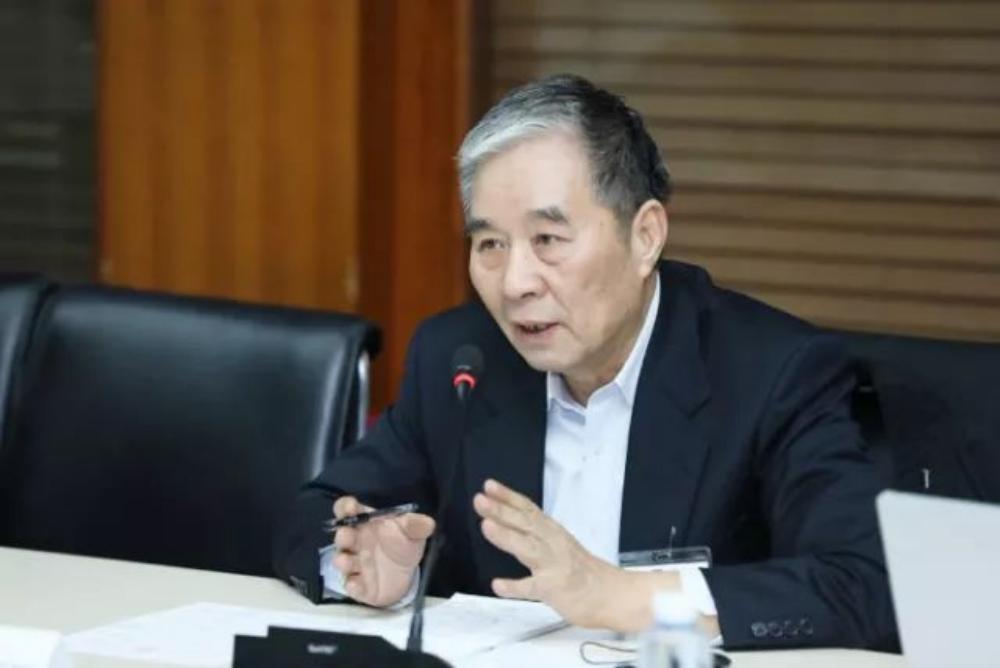
Speech by Yanhua Liu
It is worth mentioning that geoscience engineering is an interdisciplinary research theme funded by the Carnegie Foundation and carried out throughout Harvard University. Afterwards, professors from various departments and backgrounds of Harvard University shared their research findings in their respective fields.
Professor David Keith, a senior expert in the field of carbon capture, presented the main technological risks faced in the management of solar radiation and their possible impacts on the climate system. He emphasized the importance of technology effectiveness - how technology can actually reduce local climate change - and he explained how climate models can be applied to measure technology effectiveness. Professor Frank Keutsch, on the other hand, further pointed out that experiments are essential for advancing geoscientific engineering, but that conducting experiments in real-world, natural environments will be controversial, and that this is a major challenge for the development of the field.
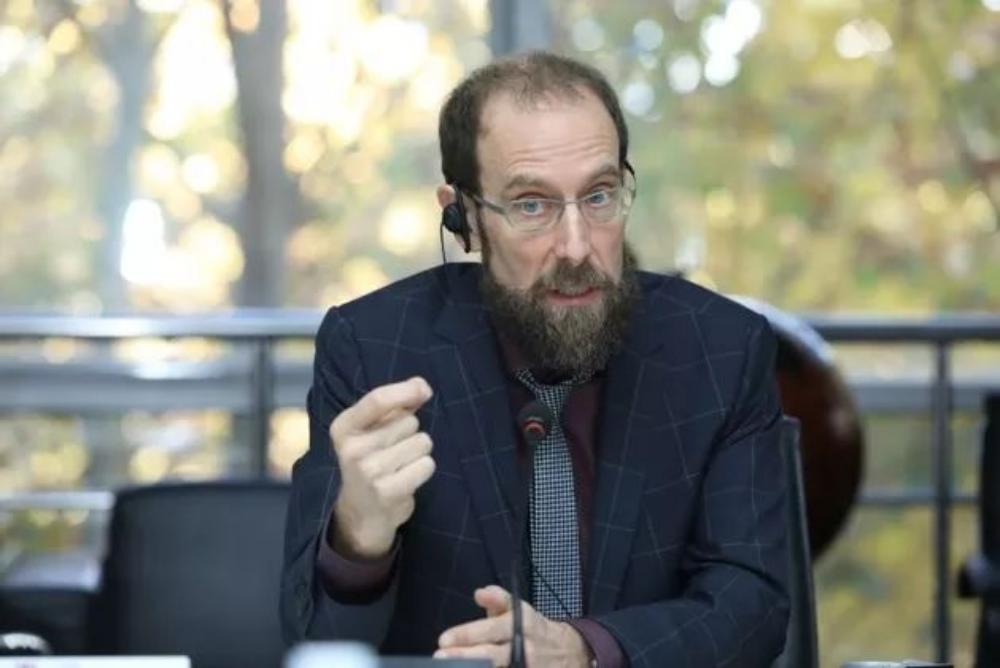
Speech by David Keith
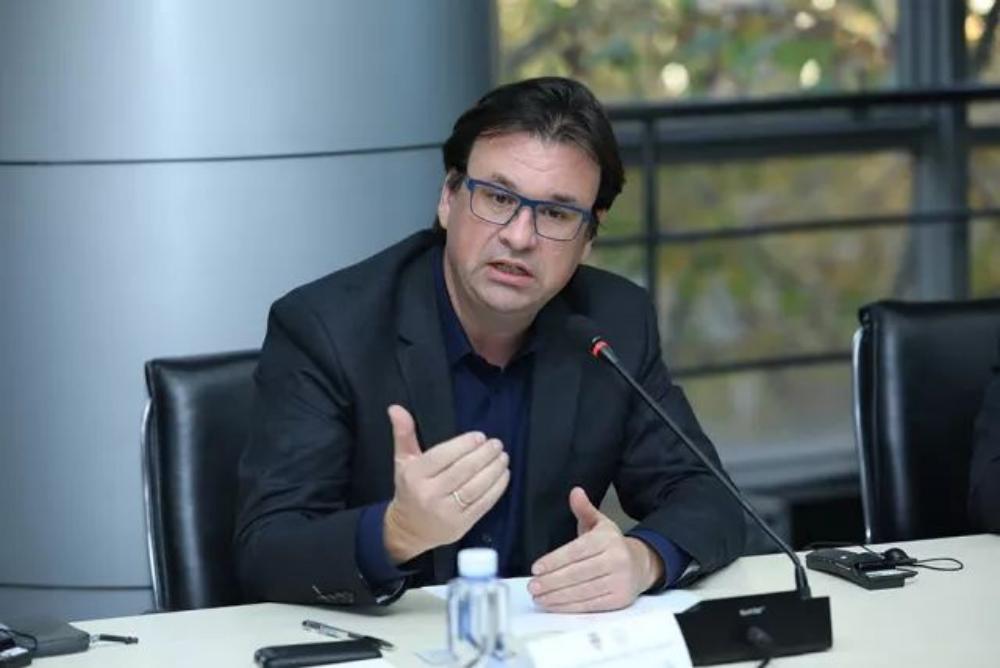
Speech by Frank Keutsch
In recent years, China has attached increasing importance to the development of the geoscience engineering field and has been increasing its investment in research. John Moore, Professor, the College of Global Change and Earth System Science, Beijing Normal University, cited the impacts of glacier melting in Greenland and technical preventive measures as an example, pointing out that ‘targeted geoengineering’ would be more effective than large-scale engineering measures on a global scale. At the same time, he introduced the technical details of damming glaciers, slowing down the rate of glacier sliding, and delaying sea level rise, and stressed the optimisation and application of ‘cost-benefit’ analysis.
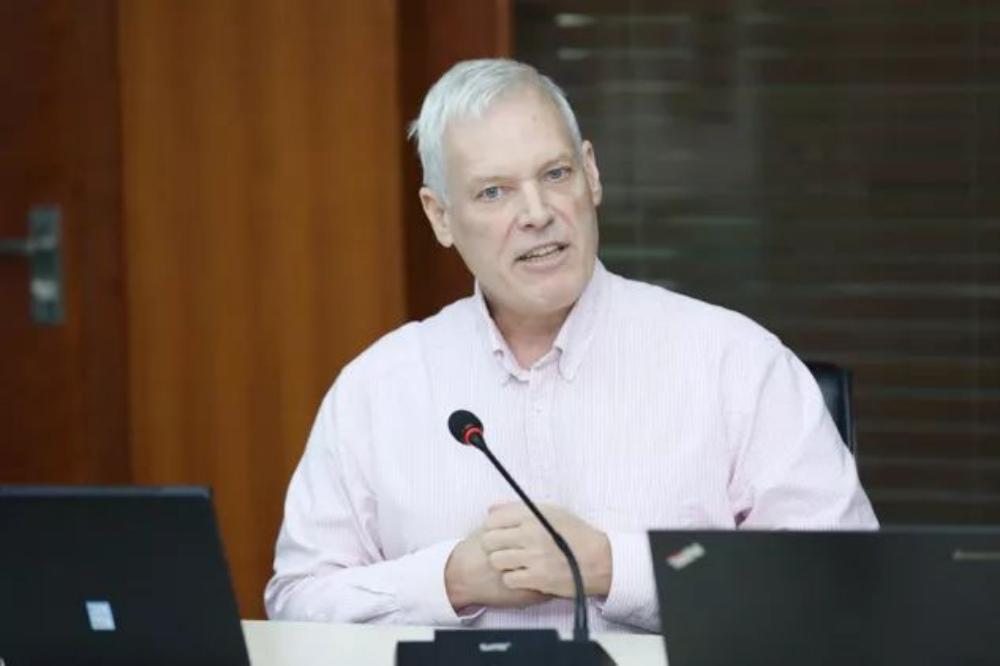
Presentation by John Moore
Wang Yi, Researcher, Institute of Science and Technology Policy and Management Science, Chinese Academy of Sciences (CAS), analyzed in depth the challenges of geoengineering risk assessment and governance, and discussed the ‘Risks of Geoscientific Engineering Applications’ in the context of the relevant laws and policies, stressing that an effective international cooperation mechanism should be formed, and a clear global governance framework should be established to attract broad participation of all sectors of the society.
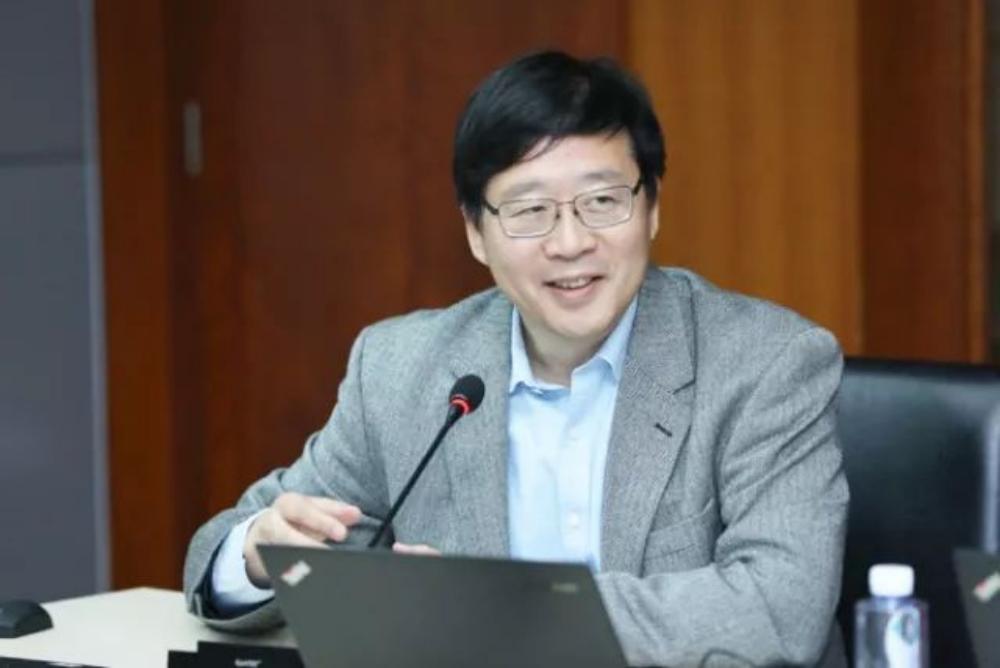
Speech by Wang Yi
As the earliest researcher involved in the field of international cooperation in geoscientific engineering, Researcher Chen Ying, Deputy Director of the Centre for Sustainable Development Studies of the Chinese Academy of Social Sciences, pointed out that geoscientific engineering, despite its many risks, is an unavoidable choice to cope with climate change. The current human understanding of the field of geoengineering is limited, and there are many uncertainties, but it is necessary to do governance first, and conduct research on the relevant objectives, subjects, principles, methods, and mechanisms. Finally, she re-emphasized the need for China and the United States to strengthen exchanges and cooperation.
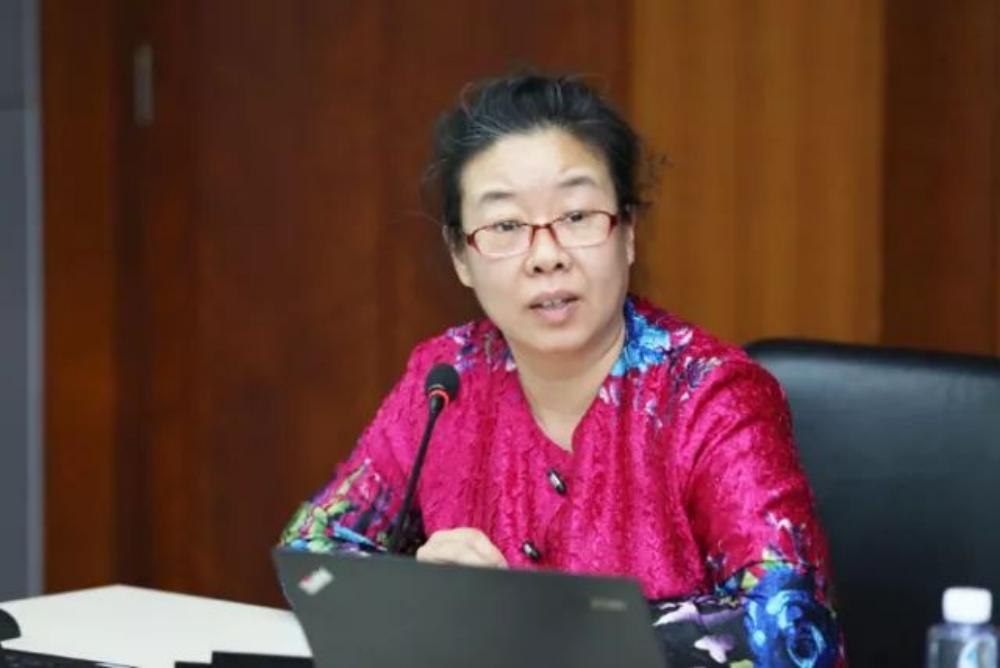
Speech by Chen Ying
In order to effectively promote geoscience engineering, governance must come first.
In addition, the participating experts particularly pointed out that geoscience engineering faces prominent international governance challenges in the process of implementation. Currently, there are wide disputes among countries around the world about the goals, subjects, principles and implementation mechanisms of international governance related to geoscience engineering. In order to effectively promote the development of geoscience engineering, governance must come first.
Xue Lan pointed out that global climate change is a typical government failure. In the process of promoting the implementation of geoscientific engineering, efforts should be made to promote the construction of international regime complex governance mechanisms, so as to effectively coordinate the contradictions in the integration of existing international mechanisms. At the same time, the leading role of key institutions should be brought into full play; and existing research resources should be integrated to for a community and enhance transparency through the implementation of 'transnational scientific research projects' to form a community and enhance transparency, so as to promote the development of the geoscience engineering field and solve the international governance problems such as path dependency.
The experts and delegates had a lively discussion on the adjustment of the thinking of geoscience engineering implementation, the security risks of geoscience engineering, the funding of climate change related research in China and the United States, the roles of different countries, the monitoring mechanism of climate change, the integration of social sciences and natural sciences, the dilemmas of the development of global governance, the responsibilities of major countries and scientists, the global cooperation system and the construction of research communities. The workshop achieved outstanding results in terms of information sharing, results sharing, conceptual consensus building, research network construction and field recognition among multiple stakeholders, and was a complete success.

